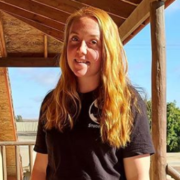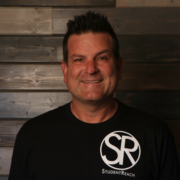How to Become a Missionary: 10 Steps You Need to Take
Authors Robyn Devoll and Jeff Devoll
Many people have thought about becoming a missionary, but what is the reality of it?
If you have ever thought about it yourself, then you have come to the right place.
This article will de-mystify missionary work, tell you how the process works, and what you need to do before you become a missionary.
In This Article:
1. Decide What Kind of Missions Work You Want to Do
2. Decide the Location
3. Decide on the Sending Organization
4. Prepare Financially for the Support-raising Process
5. Learn Support Raising
6. Get the Backing
7. Have a Realistic View
8. Be Willing
9. Be a Missionary Intern
10. Work with uReach
What Are Other Ways I Can Be Involved With uReach?
Who is uReach?
1. Decide What Kind of Missions Work You Want to Do

There was a time when being a missionary was a matter of picking a country to share your faith with, gaining support, backing, and going to live there.
Missionary families would say goodbye to their loved ones—before the age of modern travel, this might be forever—and get on a boat to find their way to a country where they would pioneer or join a team and figure it out. All they knew was that people needed to hear about God or needed practical help and they were called to bring that help and hope to the foreign field.
However, times have changed.
That brand of missionary work today would be largely seen as somewhat ethno-centric (judging another culture against your own cultural standards) and is the product of a messiah complex and colonial in its approach. Now, missionary work is largely focused on the specific needs on “the field” (a term meant to describe where the missionary work takes place).
Missionaries might be focused on church planting, supporting national (local residents of the nation in the missionary field) pastors, health projects, construction projects or even information technology.
Even more specific areas might be combatting human trafficking, teaching business, or doing dental work.
Here’s the key to finding the right place in your missionary destination: matching your skills with the needs of the country, community or missionary organization with which you want to engage.
uReach is an organization that does practical work (education, housing and water) and is primarily staffed by people of faith.
2. Decide the Location

Many missionary organizations will simply assign you to a location, or let you know where there is need if you aren’t sure, but there are still many considerations to make like those outlined below.
Your passion: Where you want to go, where you feel God has called you to, or the kind of people you are passionate about might be deciding factors.
Your place in life: When you are 20 years old, anywhere might work, but if you have kids, especially teenagers, this is an important factor.
Many missionaries have unexpected family issues, like teenagers who are struggling, that force them to leave the field pre-maturely.
Your health: There are places that might not work because of the health of you or your family.
Older missionaries might need to be close to good health care.
Children with special needs may need specialized therapy or health care.
Dust, humid conditions, or other environmental factors like pollution, may need to be considered.
uReach has locations in the US, Baja California (Mexico), Nicaragua (Central America) and Zambia (Africa).
With uReach, you would find yourself in one of these 4 locations.
Baja for example, is a desert, and therefore a dusty environment, which might not be suited to your health if you have asthma.
3. Decide on the Sending Organization

Large organizations like World Vision (the world’s largest “NGO” [Non-governmental organization]), the Southern Baptists (America’s Largest protestant denomination), the Assemblies of God (the world’s largest missionary denomination) or the Catholic Church, may have a very involved process, but also have less complicated or difficult ways to become a missionary.
The full process can look like a career and take many years and levels of education to achieve.
Smaller organizations may have a fairly simple process that is open-ended.
Organizations like Youth With A Mission have a simple discipleship training model that takes a few months to a year to complete, at a relatively low cost.
uReach has a flexible style of missionary orientation that many people find is an efficient and easy process with room for flexibility that allows learning on the fly.
Once you make these decisions, your preparation is far from over.
The next steps are essential.
4. Prepare Financially for the Support Raising Process

The next crucial step is to begin telling people about what you’re doing, and thinking and praying about who might support you.
Sometimes that means working an extra job for a few months driving Uber or delivering pizza, but you can’t ask people to support poor decisions.
This might involve getting out of debt or reducing debt.
School debt may not have been a poor decision, but it can be debilitating.
(uReach, unlike most organizations, qualifies for school debt relief, where your payments can be reduced to as little as $0 and completely erased after 10 years. Reach out to us about how this federal government program works.)
You may also want to reduce monthly expenditures.
Gym memberships may need to be temporarily replaced with jogging, your Netflix and Hulu subscriptions might be put on hold.
Eating out and buying specialty coffee may need to be substituted with eating at home and making coffee in your own kitchen.
5. Learn Support Raising

Support raising can be learned.
There are Universities that offer master’s degrees in fundraising, so it is a learned skill.
You can and must learn this skill.
It is essential to every missionary.
Organizations like Support Raising Solutions are a huge help and can take you from zero to proficient in a short period of time.
Books like “The God Ask” are available and will help you immensely.
You may be thinking that you would rather not raise support, but this isn’t a good decision.
Even if your personal support is not an issue, your projects will need funding far beyond what you can self-fund, unless your vision is very small.
Even the Bill Gates Foundation raises money from others, as well as the United Nations and Warren Buffet.
If the richest people in the world form strategic partnerships through fundraising, you shouldn’t think you’ll skip this step.
Your financial supporters will not only help fund your missionary work, but they’ll pray for you and provide encouragement and emergency help if the need arises.
Organizations like uReach not only provide you the training you need, but provide support and assistance and all the fundraising tools you’ll need.
You’ll want to find an organization like that to be successful.
6. Get the Backing
You cannot do this alone. You’re going to need emotional, spiritual and financial support. You have to build a team.
A lot of people want to skip fundraising because it requires them to be dependent on other people but understanding that we are dependent on God and others is essential to the successful missionary journey.
You might see your independence as noble, but it is just pride in most cases. Jesus, Paul, and every other great leader in the new testament were dependent on others.
Think about it, Jesus could have supported his ministry by turning rocks into bread and pebbles into gold, but it was God’s plan to involve others in the journey.
Here’s a key thought: Jesus said where your treasure is, that’s where your heart will be. You want people who invest financially so that they will be emotionally and spiritually invested in you and your success.
Even if your own salary is not needed, what about giving people the opportunity to invest in your ministry?
Follow the biblical pattern. Build a team of financial support, prayer support and emotional support. You won’t be successful without a team.
7. Have a Realistic View

You need to have a realistic view about what ministry is going to look like.
In most missionary presentations, you only about the victories and all the great things the Lord is doing.
You don’t hear about the everyday office work.
Or all the behind the scenes work that goes into making the great things happen.
The first few months or so in a new place are the hardest. You’re establishing new friendships and a new pattern of life.
You will often think about all the differences and that the things people do are ridiculous.
But you will come to learn how to live there. The new things will come to make sense and be normal.
8. Be Willing

A good attitude is worth a lot in this line of work.
A few guarantees are you will do things you are uncomfortable with and you will learn new skills.
Maintaining a good attitude throughout the process will make it more enjoyable for you and everyone else.
You must be teachable.
This means you need to be willing to learn. Learn new skills and how to do things different ways.
This requires being adaptable, and flexible. If one way did not work, then try a different way.
Go with the flow.
When you work with uReach you will learn many new skills, from how to build a house to how to build a website.
New opportunities are endless.
We strive to be lifelong learners and encourage others to be as well.
9. Be a Missionary Intern

Many organizations offer mission internships.
The length and type of internship will vary as they are dependent on the organization. So, find one that is right for you.
You are on the ground with full time missionaries of the sending organization, receiving hands on training and leadership skills.
uReach offers an 8-week internship called SummerServe, in Baja, Mexico.
It’s hard work. You’ll be pushed to your limits and stretched further than you thought you could be.
You’ll be exhausted, uncomfortable and expected to do things you thought were beyond your capability.
You will find no matter where you end up for your internship that it will be worth it.
10. Work with uReach

You may not have what it takes now, but this is why at uReach we have different paths to doing mission work.
It is something that can be learned. We are not the only ones who do this, but we believe we have great opportunities.
One path to working with us is by starting out as an intern in our SummerServe program as mentioned above.
After your internship if you are interested in working with us, lets discuss what it takes!
Another way is going on a short-term mission’s trip with us in Baja Mexico. Come on a trip, see what we are about, what we do, and if you like the work- do it longer.
No matter your age, you can help!
What Are Other Ways I Can Be Involved With uReach?

Ready to take the next step? here a few ways to do so.
Volunteer:
As mentioned above you can sign up to come on a uReach expedition.
In the midst of overwhelming poverty, the rich cultures and resilient people of the countries we serve in will amaze you.
The potential in every child is as unlimited as the rain forests that stretch without end.
After this trip, you will never see the world the same way again.
Donate:
Maybe you’re not ready to go on a trip or you want to help now. One way you can do so is financially.
You can give to a project today, to help move it forward. You can even donate items of value, like a used laptop you have sitting around.
We turn your unused and unwanted items into cash. The proceeds directly benefit our projects and programs.
When you give, we will even send you pics and videos of our projects in construction and once completed!
We are committed to making a difference in the lives of others.
When you donate to us you can guarantee your funds go to helping those in need. What if I only want to give $10? Then you can give $10.
Each and every dollar matters, no matter if it’s $1 or $1,000.
Contact us:
Reach out to us today for more information on an expedition, our intern program or about donating!
We are easy to get in touch with.
You can call us, text us, DM us on social media, or use the contact form at the top of our page.
Who is uReach?

uReach was formed in 2000 with the goal of empowering others to make the world a better place.
We have since taken over 6,000 people to locations around the world.
We have worked with high school groups, college groups, families, church groups, doctors, dentists, lawyers, men’s groups, and more.
Our primary focus has been on health, education, housing and water projects.
We work with people living in poverty, but primarily with those living in absolute poverty.
Absolute poverty is defined by the United Nations as living on less than $1.90 per day.
It is marked by poor sanitation, health care, education, and nutrition. If you’re looking to enhance the lives of others, reach out to our team and request a call back to take the first step in your journey to creating a better life for yourself, and the not so fortunate.
If this is something you would be interested in, then check us out!
If you have more thoughts about what it takes to be a missionary, we would love to hear about them in the comments below.
More about uReach:
We are a Non-Profit that is focused on students.
We work in:
- United States
- Baja, Mexico
- Zambia, Africa
- Nicaragua, Central America
What we do:
- Housing Projects
- Water Projects
- Volunteering abroad
- Education Projects
Taking a trip with StudentReach is way more than just traveling – it’s you being a hero to someone who desperately needs help.
We work with people living in absolute poverty.
What can you do to help? More than you think. You can be a hero.
Come on a trip with us today!
Authors


About the author: Robyn Cook
Robyn is from Flint, Michigan, and is a graduate of Michigan State University- holding a bachelors in Religious Studies. She is writer and editor extraordinaire. Robyn is a lover of all things art and pasta. Fun fact: she loves to snowboard.
About the author: Jeff Devoll
Jeff Devoll, executive director of StudentReach, is an international speaker, trainer, facilitator and mentor to students and leaders. Fun fact: Jeff is taking flying lessons to gain his pilot license.
In the comments below let us know your thoughts on becoming a missionary!
If you enjoyed this article share it with a friend

![Life-changing Ways To Be Involved In Clean Water Projects [2021]](https://www.ureach.global/wp-content/uploads/feat-image-80x80.jpg)
Leave a Reply
Want to join the discussion?Feel free to contribute!